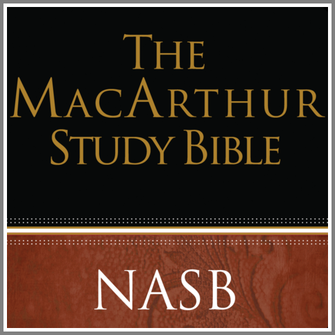Christians who adhere to the doctrines of the Reformation commonly belong to congregations and denominations worldwide that are representative of the Reformed tradition. Among the most recognized Reformed denominations that hold to historic Reformed and confessional theology are the Presbyterian Church in America, the Orthodox Presbyterian Church, the Associate Reformed Presbyterian Church, the United Reformed Church, the Free Church of Scotland, together with numerous other American, British, and Dutch Reformed, Presbyterian, and Anglican denominations.
Historically, Reformed congregations and denominations adhere to one or more of the historic Protestant and Reformed Confessions and Catechisms. The most widely accepted historic Reformed confessions and Catechisms have been the Westminster Standards (i.e., the Westminster Confession of Faith, together with the Shorter and Larger Catechisms) and the Three Forms of Unity (i.e., the Belgic Confession, the Canons of Dort, and the Heidelberg Catechism). The system of doctrine contained in these historic Protestant confessions and catechisms forms the basis of Reformed and Protestant theology.
The purpose of this article is to explain the most basic central beliefs of Reformed churches and to provide resources for Reformed Bible study.
Table of contents
What does “Reformed” mean?
The term “Reformed” describes the sixteenth-century theological movement of those who were used by God to reform the church according to the teaching of Scripture. The Reformation was fueled by a shared desire for biblical reform in the spheres of worship, soteriology, and ecclesiology.
What do those who adhere to the Reformed tradition believe?
Reformed churches hold to such doctrines as those respecting the authority and sufficiency of Scripture; Nicene Trinitarianism; Chalcedonian Christology; the sovereignty of God in creation, providence, and redemption; the Covenant of Works and Covenant of Grace framework of revelation; the doctrines of grace; the solas of the Reformation; the penal substitutionary sacrifice of Christ; union with Christ in his death and resurrection; the marks of the true church; heaven and hell; and central doctrines related to the last things.
Historically Reformed congregations adhere to the following central doctrines:
1. The sovereignty of God
The Reformed believe that the Bible teaches God’s sovereignty over all things. In Scripture, this means his eternal decree and the outworking of that decree in his acts of creation, providence, and redemption. In the realm of redemption, this means that the Reformed emphasize the doctrine of God’s sovereignty in his free and unmerited election of those he would redeem in Christ. This teaching is not, however, unique to the Reformation. Theologians from Augustine to Aquinas have held to the doctrine of the electing grace of God.
2. The doctrines of grace
The doctrines of grace are those interconnected doctrines of the sin of man and the salvation provided by God. In the twentieth century, the Reformed began to teach the doctrines of grace under the “backcronym” TULIP. Accordingly, the five doctrines of grace are:
- Total depravity
- Unconditional election
- Limited atonement
- Irresistible grace
- Perseverance of the saints
Historically, these five points (also commonly referred to as the five points of Calvinism) are rooted in the teaching of the Canons of Dort. The Canons of Dort were written to combat the spread of what has come to be known as Arminianism. The doctrines of grace are essential to the soteriological teaching of Reformed theologians and pastors.
3. The solas of the Reformation
The five solas of the Reformation are salvation:
- by grace alone (sola gratia)
- through faith alone (sola fide)
- in Christ alone (solus christus)
- by the Scripture alone (sola scriptura)
- to the glory of God alone (soli deo gloria)
As the Roman Catholic church had made salvation dependent on the church, the sacraments, penance, and other unbiblical practices, the Reformers labored to put forward the biblical teaching that God redeems his people in Christ apart from anything that they contribute. They highlighted the biblical teaching about the sole means that God has appointed for the salvation of the elect.
4. The regulative principle of worship
Historically, Reformed theologians highlighted the importance of only bringing into the public worship of God those elements that he has prescribed in his Word. This was in stark contrast with the practice of the Roman Catholic Church during the Reformation. In many respects, the Reformation was an effort to reclaim the right worship of God contra the traditions and inventions of men.
5. Covenant theology
The Reformed believe in the architectonic covenantal principle of federal representation of all men in Adam or Christ. For Reformed theologians, the biblical emphasis on the Covenant of Works made with Adam and the Covenant of Grace made with Christ and the elect in him formed the basis of understanding the unfolding of redemptive history. Everything before the fall belonged to the representation of Adam in the Covenant of Works; everything after the fall can only rightly be understood in relation to Christ and the Covenant of Grace.
The inclusion of covenant children within the purposes of God is a vital aspect in the historical outworking of the Covenant of Grace. The recognition that God has given promises to professing believers and their children in the New Covenant era, even as he did in the Old Covenant era, is central to historically Reformed churches. In the seventeenth century, however, prominent Baptist theologians and pastors adopted most of what had been articulated in the sixteenth- and seventeenth-century Reformed confessions and catechisms in various “Reformed Baptist” confessions of faith—most notably in the Second London Baptist Confession (1689). These confessions see a different role for the children of New Covenant members, arguing instead that baptism and church membership—participation in the covenant—is for believers only.
Related article: “What Is Reformed Theology? Its Roots, Core Beliefs & Key Leaders” by Daniel R. Hyde
Who are some of the prominent figures of the Reformed tradition?
Reformed theology is rooted in the work of the sixteenth-century magisterial Protestant Reformers. Namely, Martin Luther, John Calvin, Heinrich Bullinger, John Knox, Ulrich Zwingli, Martin Bucer, and others.
The expansion of the Reformation in the seventeenth century brought with it the English Puritan movement, the Dutch Second Reformation, and the post-Reformation scholastic movement. Some of the more well-known figures of this period are Thomas Manton, Richard Sibbes, Thomas Goodwin, George Gillespie, Samuel Rutherford, Petrus van Maastricht, and Francis Turretin.
Among the most distinguished eighteenth-century Reformed theologians are John Newton, Thomas Boston, Ralph Erskine, Ebenezer Erskine, Jonathan Edwards, and George Whitefield.
In the nineteenth and early twentieth centuries, Herman Bavinck, B. B. Warfield, Charles Hodge, Geerhardus Vos, J. Gresham Machen, John Murray, and Cornelius Van Til were some of the more influential Reformed theologians.
In the latter part of the twentieth and beginning of the twenty-first century, the most renowned Reformed theologians have included J. I. Packer, R. C. Sproul, Joel Beeke, and Sinclair Ferguson.
Is there a difference between Reformed and Calvinistic Churches?
The terms “Reformed” and “Calvinistic” have frequently been used interchangeably by adherents of the doctrines of grace. Historically, Reformed churches were denoted by those ecclesiastical fellowships and denominations that adhere to one or more of the Protestant and Reformed confession of faith. In the latter part of the twentieth century, many who had begun to embrace the doctrines of grace and the solas of the Reformation often borrowed the nomenclature “Reformed” to denote their commitment to Calvinism generally in the realm of soteriology.
FAQs about Reformed Bible study
Here are a few commonly asked questions about Reformed Bible study:
1. Do the Reformed believe in evangelism?
There was no small debate in the twentieth century about the relationship between the biblical teaching on election and predestination and the church’s God-given mission to carry the gospel to the nations. Many misrepresentations about the Reformed doctrine of predestination lead to strawman arguments in relation to the Great Commission. The Reformed have never taught that it does not matter whether believers share the gospel with others or not. Rather, they have always taught that only the elect will respond in faith and repentance when the gospel is proclaimed to them by ministers and Christians whom God has sent to carry the gospel to them. One of the more helpful works that explains the Reformed understanding of the teaching of Scripture about the sovereignty of God in salvation and the call for his people to evangelize the nations is J. I. Packer’s Evangelism and the Sovereignty of God.
2. Do the Reformed baptize their children because they presume that their children are regenerate?
While presumptive regeneration has certainly been adhered to in some Reformed circles, this is not the widespread teaching of the Reformed confessions, creeds, and catechisms. Neither is the position held by Reformed Baptist churches that the children of professing believers have no special promises from God. Rather, the majority position in the Reformed tradition is that God gives professing believers and their children promises built on his gracious covenantal dealings with them. These promises serve the purpose of nurturing the children of professing believers as they grow up under the nurture and discipline of their parents and in a local church. The parents of believers are to look for fruit that is born in the lives of their children as they grow and mature. Ultimately, only the elect children of professing believers will be salvifically united to Jesus Christ and bear fruit unto eternal life. One of the more helpful practical books for understanding the relationship between the covenant promises and the need for children to hear and believe the gospel is Joel Beeke’s Bringing the Gospel to Covenant Children.
3. What are the best Reformed study Bibles?
While there are numerous helpful study Bible’s that include notes representative of the Reformed tradition, some of the more consistently Reformed are the Reformation Study Bible and the Reformation Heritage Study Bible.
Other study Bibles in the broadly Reformed tradition include the ESV Study Bible and the MacArthur Study Bible.
4. What are the best Logos Reformed packages?
There are several different Logos 10 Reformed packages which you can use to build a Reformed theological library. Logos 10 Reformed Silver is a great resource for everyday Christians, small group leaders, Sunday school teachers, and pastors who preach on a less frequent basis. The Logos 10 Reformed Gold package is a more developed package for those who regularly lead small groups, teach Sunday school, preach, and study in seminary. The Reformed Platinum package is the most advanced, serving the purpose of providing theological resources for teachers, preachers, and seminary students.
The resources included in these packages will assist all students of Scripture in their desire to grow in their knowledge of God and live more fully to his glory. They make Bible study easier, smoother, and more productive. The more you grow and develop in your study of Reformed history, doctrine, and practice, the more you will want to add individual resources to whatever package you purchase.








